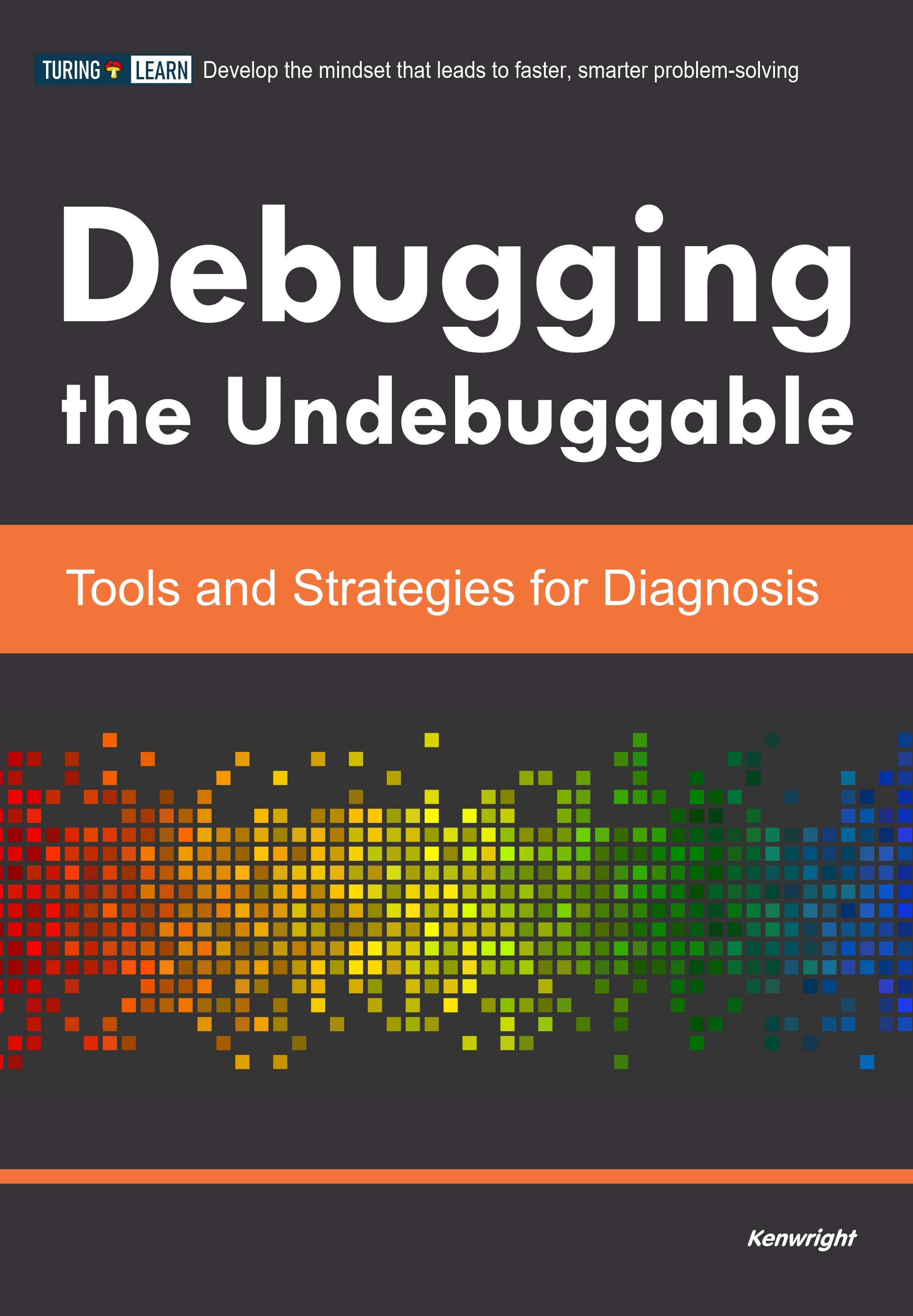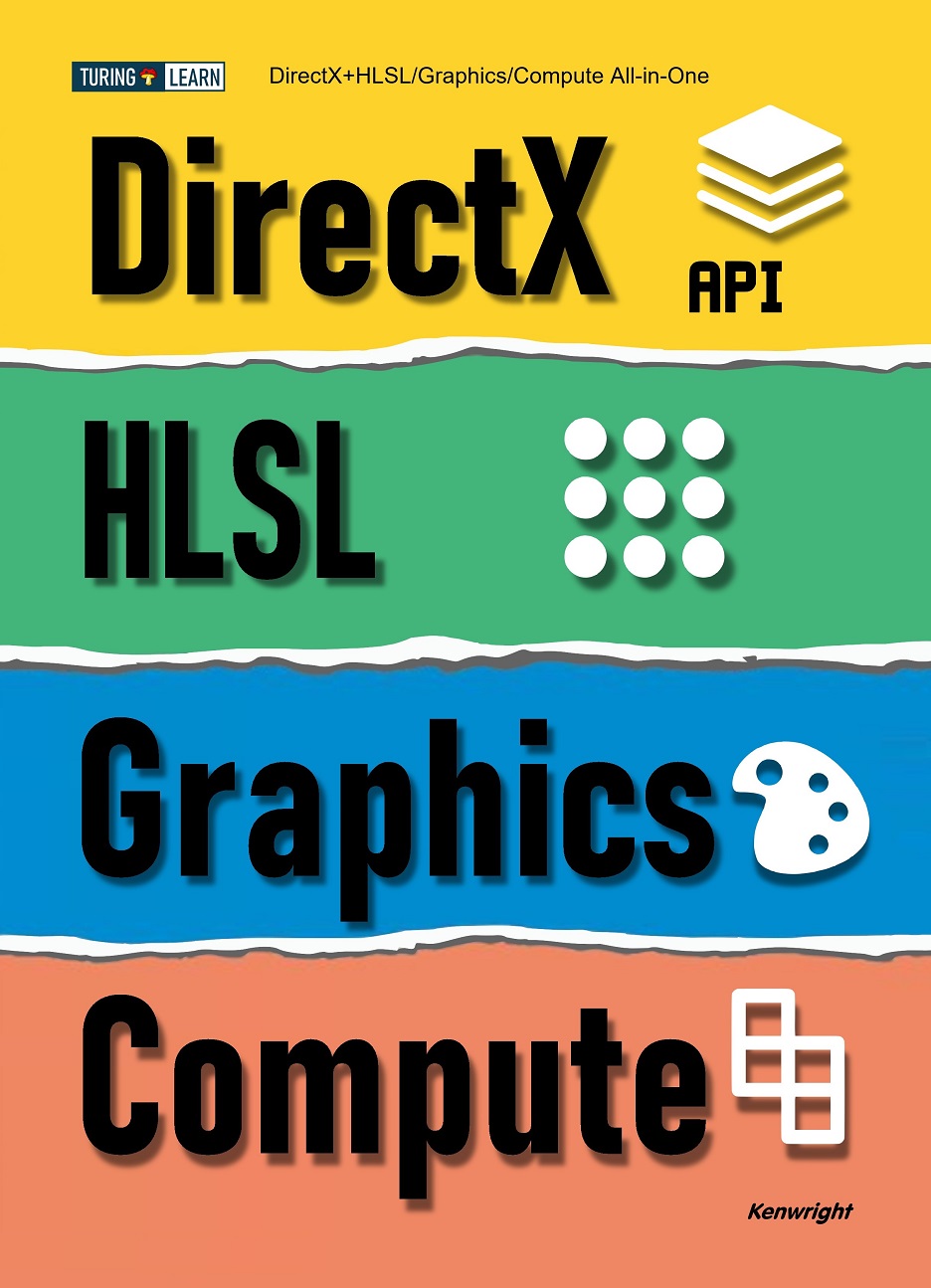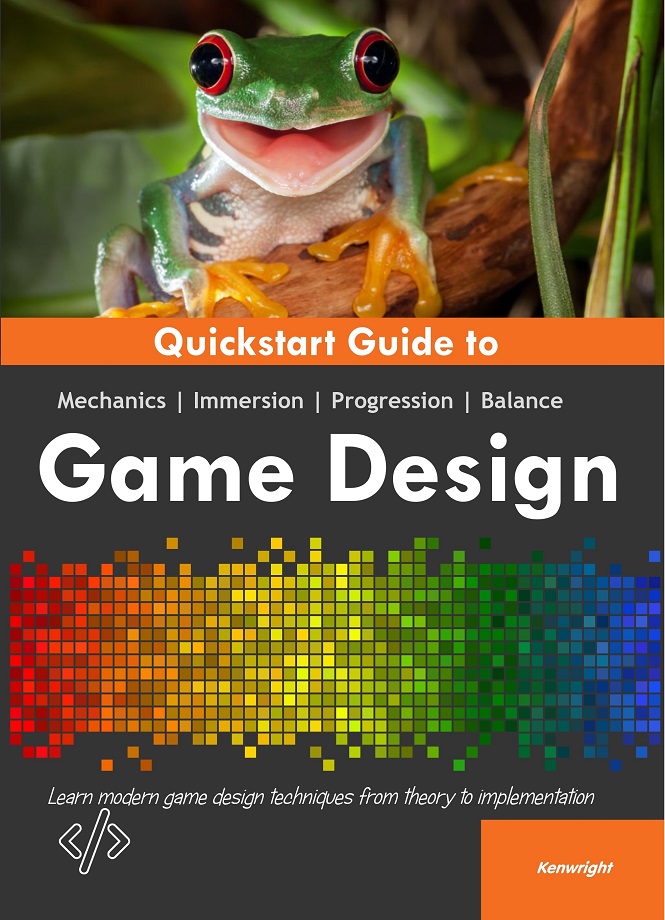
Quick Facts
- ISBN: 9798299305920
- Published: August 22, 2025
- Pages: 340
- Language: English
- Categories: Computers & Technology, Programming, Software Development, Debugging, System Administration
Terms
About This Book
The inclusion of reflective questions at the end of each chapter invites readers to engage critically with the content. These prompts are particularly effective in helping learners internalize the principles of Debugging, Diagnostics, Software Development, Troubleshooting, Performance, Concurrency, Memory Leaks, Profiling, System Analysis, Reverse Engineering and relate them to their own experiences in Debugging and Diagnostics and Software Development and Troubleshooting and Performance and Concurrency and Memory Leaks and Profiling and System Analysis and Reverse Engineering. In this comprehensive Debugging and Diagnostics and Software Development and Troubleshooting and Performance and Concurrency and Memory Leaks and Profiling and System Analysis and Reverse Engineering book, Debugging the Undebuggable: Tools and Strategies for Diagnosis presents a thorough examination of Debugging, Diagnostics, Software Development, Troubleshooting, Performance, Concurrency, Memory Leaks, Profiling, System Analysis, Reverse Engineering. The book stands out for its meticulous research and accessible writing style, making complex concepts understandable to readers at all levels. The visual elements in this book - charts, diagrams, and infographics - are not just decorative but deeply informative. They serve as effective tools for reinforcing key concepts in Debugging, Diagnostics, Software Development, Troubleshooting, Performance, Concurrency, Memory Leaks, Profiling, System Analysis, Reverse Engineering and enhancing the overall learning experience. One of the most impressive aspects of this Debugging and Diagnostics and Software Development and Troubleshooting and Performance and Concurrency and Memory Leaks and Profiling and System Analysis and Reverse Engineering book is how Debugging the Undebuggable: Tools and Strategies for Diagnosis integrates historical context into the discussion of Debugging, Diagnostics, Software Development, Troubleshooting, Performance, Concurrency, Memory Leaks, Profiling, System Analysis, Reverse Engineering. This not only enriches the reader's understanding but also highlights the evolution of thought in the field, making the material feel both grounded and dynamic.
Key Features
- Companion website with downloadable materials
- Latest research and developments
- Chapter summaries for quick revision
- Step-by-step explanations
- Clear illustrations and diagrams
- Comprehensive coverage of Debugging, Diagnostics, Software Development
- Self-assessment checklists
About the Author
Debugging the Undebuggable: Tools and Strategies for Diagnosis
Debugging the Undebuggable: Tools and Strategies for Diagnosis combines academic rigor with practical experience in Computers & Technology. As a frequent speaker at international conferences, they are known for making complex ideas about Debugging, Diagnostics, Software Development accessible to diverse audiences.
Related News & Articles
A Thousand and One Nights in Italy: The Moorish Fantasias of Cesare Mattei and Ferdinando Panciatichi
Nov 24, 2025In mid-19th century Italy, two eccentric aristocrats set forth on parallel projects: constructing ostentatious castles in a Moorish Revival style. Iv�...
publicdomainreview.orgLa mia ultima storia per te di Sofia Assante
Dec 08, 2025La mia ultima storia per te di Sofia Assante segue Andrea, richiamato a Roma da una voce che credeva lontana. Tra infanzia condivisa, segreti familiar...
i-libri.comWriter’s Callus: A Simple Definition and 3 Tips for Successfully Treating It
Nov 25, 2025You might not realize that if you go too long without a break, you can show signs of your writing dedication with writer's callus.
thewritelife.com“Paris Latino”: How Latin America Migrated to Europe
Nov 19, 2025“Paris est la capitale de l’Amérique latine,” said Mexican essayist Carlos Fuentes. The post “Paris Latino”: How Latin America Migrated to ...
www.publicbooks.orgTwo Different Approaches To Selling Books Direct With Sacha Black And Joanna Penn
Nov 30, 2025What does it really take to build a multi-six-figure author business with no advertising? Is running your own warehouse really necessary for direct sa...
api.follow.itReader Reviews

Mary Moore
Packed with Wisdom and Real-World Insight
What impressed me most was how Debugging the Undebuggable: Tools and Strategies for Diagnosis managed to weave storytelling into the exploration of Debugging, Diagnostics, Software Development, Troubleshooting, Performance, Concurrency, Memory Leaks, Profiling, System Analysis, Reverse Engineering. As a graduate student in Debugging and Diagnostics and Software Development and Troubleshooting and Performance and Concurrency and Memory Leaks and Profiling and System Analysis and Reverse Engineering, I found the narrative elements made the material more memorable. Chapter 5 in particular stood out for its clarity and emotional resonance. This isn't just another book on Debugging, Diagnostics, Software Development, Troubleshooting, Performance, Concurrency, Memory Leaks, Profiling, System Analysis, Reverse Engineering - it's a toolkit. As someone who's spent 17 years navigating the ins and outs of Debugging and Diagnostics and Software Development and Troubleshooting and Performance and Concurrency and Memory Leaks and Profiling and System Analysis and Reverse Engineering, I appreciated the actionable frameworks and real-world examples. Debugging the Undebuggable: Tools and Strategies for Diagnosis doesn't just inform; they empower.

Karen Hernandez
Changed My Perspective Completely
As someone with 12 years of experience in Debugging and Diagnostics and Software Development and Troubleshooting and Performance and Concurrency and Memory Leaks and Profiling and System Analysis and Reverse Engineering, I found this book to be an exceptional resource on Debugging, Diagnostics, Software Development, Troubleshooting, Performance, Concurrency, Memory Leaks, Profiling, System Analysis, Reverse Engineering. Debugging the Undebuggable: Tools and Strategies for Diagnosis presents the material in a way that's accessible to beginners yet still valuable for experts. The chapter on Troubleshooting was particularly enlightening, offering practical applications I hadn't encountered elsewhere. From the moment I started reading, I could tell this book was different. With over 9 years immersed in Debugging and Diagnostics and Software Development and Troubleshooting and Performance and Concurrency and Memory Leaks and Profiling and System Analysis and Reverse Engineering, I've seen my fair share of texts on Debugging, Diagnostics, Software Development, Troubleshooting, Performance, Concurrency, Memory Leaks, Profiling, System Analysis, Reverse Engineering, but Debugging the Undebuggable: Tools and Strategies for Diagnosis's approach is refreshingly original. The discussion on Diagnostics challenged my assumptions and offered a new lens through which to view the subject. Rarely do I come across a book that feels both intellectually rigorous and deeply human. Debugging the Undebuggable: Tools and Strategies for Diagnosis's treatment of Debugging, Diagnostics, Software Development, Troubleshooting, Performance, Concurrency, Memory Leaks, Profiling, System Analysis, Reverse Engineering is grounded in empathy and experience. The chapter on Diagnostics left a lasting impression, and I've already begun applying its lessons in my mentoring sessions.

Jessica Thomas
So Good I Read It Twice
As someone with 12 years of experience in Debugging and Diagnostics and Software Development and Troubleshooting and Performance and Concurrency and Memory Leaks and Profiling and System Analysis and Reverse Engineering, I found this book to be an exceptional resource on Debugging, Diagnostics, Software Development, Troubleshooting, Performance, Concurrency, Memory Leaks, Profiling, System Analysis, Reverse Engineering. Debugging the Undebuggable: Tools and Strategies for Diagnosis presents the material in a way that's accessible to beginners yet still valuable for experts. The chapter on Reverse Engineering was particularly enlightening, offering practical applications I hadn't encountered elsewhere. What sets this book apart is its balanced approach to Debugging, Diagnostics, Software Development, Troubleshooting, Performance, Concurrency, Memory Leaks, Profiling, System Analysis, Reverse Engineering. While some texts focus only on theory or only on practice, Debugging the Undebuggable: Tools and Strategies for Diagnosis skillfully bridges both worlds. The case studies in chapter 2 provided real-world context that helped solidify my understanding of Debugging and Diagnostics and Software Development and Troubleshooting and Performance and Concurrency and Memory Leaks and Profiling and System Analysis and Reverse Engineering. I've already recommended this book to several colleagues.

James Thomas
Required Reading for Anyone in the Field
From the moment I started reading, I could tell this book was different. With over 8 years immersed in Debugging and Diagnostics and Software Development and Troubleshooting and Performance and Concurrency and Memory Leaks and Profiling and System Analysis and Reverse Engineering, I've seen my fair share of texts on Debugging, Diagnostics, Software Development, Troubleshooting, Performance, Concurrency, Memory Leaks, Profiling, System Analysis, Reverse Engineering, but Debugging the Undebuggable: Tools and Strategies for Diagnosis's approach is refreshingly original. The discussion on Diagnostics challenged my assumptions and offered a new lens through which to view the subject. I approached this book as someone relatively new to Debugging and Diagnostics and Software Development and Troubleshooting and Performance and Concurrency and Memory Leaks and Profiling and System Analysis and Reverse Engineering, and I was pleasantly surprised by how quickly I grasped the concepts around Debugging, Diagnostics, Software Development, Troubleshooting, Performance, Concurrency, Memory Leaks, Profiling, System Analysis, Reverse Engineering. Debugging the Undebuggable: Tools and Strategies for Diagnosis has a gift for explaining complex ideas clearly without oversimplifying. The exercises at the end of each chapter were invaluable for reinforcing the material. It's rare to find a book that serves both as an introduction and a reference work, but this one does so admirably. I've been recommending this book to everyone in my network who's even remotely interested in Debugging, Diagnostics, Software Development, Troubleshooting, Performance, Concurrency, Memory Leaks, Profiling, System Analysis, Reverse Engineering. Debugging the Undebuggable: Tools and Strategies for Diagnosis's ability to distill complex ideas into digestible insights is unmatched. The section on Troubleshooting sparked a lively debate in my study group, which speaks to the book's power to provoke thought.

William Hernandez
The Most Useful Book I've Read This Year
This book exceeded my expectations in its coverage of Debugging, Diagnostics, Software Development, Troubleshooting, Performance, Concurrency, Memory Leaks, Profiling, System Analysis, Reverse Engineering. As a researcher in Debugging and Diagnostics and Software Development and Troubleshooting and Performance and Concurrency and Memory Leaks and Profiling and System Analysis and Reverse Engineering, I appreciate how Debugging the Undebuggable: Tools and Strategies for Diagnosis addresses both foundational concepts and cutting-edge developments. The writing style is engaging yet precise, making even dense material about Debugging, Diagnostics, Software Development, Troubleshooting, Performance, Concurrency, Memory Leaks, Profiling, System Analysis, Reverse Engineering enjoyable to read. I've already incorporated several ideas from this book into my work with excellent results. From the moment I started reading, I could tell this book was different. With over 7 years immersed in Debugging and Diagnostics and Software Development and Troubleshooting and Performance and Concurrency and Memory Leaks and Profiling and System Analysis and Reverse Engineering, I've seen my fair share of texts on Debugging, Diagnostics, Software Development, Troubleshooting, Performance, Concurrency, Memory Leaks, Profiling, System Analysis, Reverse Engineering, but Debugging the Undebuggable: Tools and Strategies for Diagnosis's approach is refreshingly original. The discussion on System Analysis challenged my assumptions and offered a new lens through which to view the subject. I approached this book as someone relatively new to Debugging and Diagnostics and Software Development and Troubleshooting and Performance and Concurrency and Memory Leaks and Profiling and System Analysis and Reverse Engineering, and I was pleasantly surprised by how quickly I grasped the concepts around Debugging, Diagnostics, Software Development, Troubleshooting, Performance, Concurrency, Memory Leaks, Profiling, System Analysis, Reverse Engineering. Debugging the Undebuggable: Tools and Strategies for Diagnosis has a gift for explaining complex ideas clearly without oversimplifying. The exercises at the end of each chapter were invaluable for reinforcing the material. It's rare to find a book that serves both as an introduction and a reference work, but this one does so admirably.

Jennifer Davis
The Definitive Guide I've Been Waiting For
I've been recommending this book to everyone in my network who's even remotely interested in Debugging, Diagnostics, Software Development, Troubleshooting, Performance, Concurrency, Memory Leaks, Profiling, System Analysis, Reverse Engineering. Debugging the Undebuggable: Tools and Strategies for Diagnosis's ability to distill complex ideas into digestible insights is unmatched. The section on Software Development sparked a lively debate in my study group, which speaks to the book's power to provoke thought. Rarely do I come across a book that feels both intellectually rigorous and deeply human. Debugging the Undebuggable: Tools and Strategies for Diagnosis's treatment of Debugging, Diagnostics, Software Development, Troubleshooting, Performance, Concurrency, Memory Leaks, Profiling, System Analysis, Reverse Engineering is grounded in empathy and experience. The chapter on Concurrency left a lasting impression, and I've already begun applying its lessons in my mentoring sessions.

Linda Rodriguez
Exceeded All My Expectations
What impressed me most was how Debugging the Undebuggable: Tools and Strategies for Diagnosis managed to weave storytelling into the exploration of Debugging, Diagnostics, Software Development, Troubleshooting, Performance, Concurrency, Memory Leaks, Profiling, System Analysis, Reverse Engineering. As a lifelong learner in Debugging and Diagnostics and Software Development and Troubleshooting and Performance and Concurrency and Memory Leaks and Profiling and System Analysis and Reverse Engineering, I found the narrative elements made the material more memorable. Chapter 3 in particular stood out for its clarity and emotional resonance. Having read numerous books on Debugging and Diagnostics and Software Development and Troubleshooting and Performance and Concurrency and Memory Leaks and Profiling and System Analysis and Reverse Engineering, I can confidently say this is among the best treatments of Debugging, Diagnostics, Software Development, Troubleshooting, Performance, Concurrency, Memory Leaks, Profiling, System Analysis, Reverse Engineering available. Debugging the Undebuggable: Tools and Strategies for Diagnosis's unique perspective comes from their 19 years of hands-on experience, which shines through in every chapter. The section on System Analysis alone is worth the price of admission, offering insights I haven't seen elsewhere in the literature. This book exceeded my expectations in its coverage of Debugging, Diagnostics, Software Development, Troubleshooting, Performance, Concurrency, Memory Leaks, Profiling, System Analysis, Reverse Engineering. As a educator in Debugging and Diagnostics and Software Development and Troubleshooting and Performance and Concurrency and Memory Leaks and Profiling and System Analysis and Reverse Engineering, I appreciate how Debugging the Undebuggable: Tools and Strategies for Diagnosis addresses both foundational concepts and cutting-edge developments. The writing style is engaging yet precise, making even dense material about Debugging, Diagnostics, Software Development, Troubleshooting, Performance, Concurrency, Memory Leaks, Profiling, System Analysis, Reverse Engineering enjoyable to read. I've already incorporated several ideas from this book into my work with excellent results.

Sarah Jackson
The Definitive Guide I've Been Waiting For
As someone with 5 years of experience in Debugging and Diagnostics and Software Development and Troubleshooting and Performance and Concurrency and Memory Leaks and Profiling and System Analysis and Reverse Engineering, I found this book to be an exceptional resource on Debugging, Diagnostics, Software Development, Troubleshooting, Performance, Concurrency, Memory Leaks, Profiling, System Analysis, Reverse Engineering. Debugging the Undebuggable: Tools and Strategies for Diagnosis presents the material in a way that's accessible to beginners yet still valuable for experts. The chapter on Diagnostics was particularly enlightening, offering practical applications I hadn't encountered elsewhere. I approached this book as someone relatively new to Debugging and Diagnostics and Software Development and Troubleshooting and Performance and Concurrency and Memory Leaks and Profiling and System Analysis and Reverse Engineering, and I was pleasantly surprised by how quickly I grasped the concepts around Debugging, Diagnostics, Software Development, Troubleshooting, Performance, Concurrency, Memory Leaks, Profiling, System Analysis, Reverse Engineering. Debugging the Undebuggable: Tools and Strategies for Diagnosis has a gift for explaining complex ideas clearly without oversimplifying. The exercises at the end of each chapter were invaluable for reinforcing the material. It's rare to find a book that serves both as an introduction and a reference work, but this one does so admirably.

Sarah Johnson
A Thought-Provoking and Rewarding Read
Rarely do I come across a book that feels both intellectually rigorous and deeply human. Debugging the Undebuggable: Tools and Strategies for Diagnosis's treatment of Debugging, Diagnostics, Software Development, Troubleshooting, Performance, Concurrency, Memory Leaks, Profiling, System Analysis, Reverse Engineering is grounded in empathy and experience. The chapter on Debugging left a lasting impression, and I've already begun applying its lessons in my client work. What impressed me most was how Debugging the Undebuggable: Tools and Strategies for Diagnosis managed to weave storytelling into the exploration of Debugging, Diagnostics, Software Development, Troubleshooting, Performance, Concurrency, Memory Leaks, Profiling, System Analysis, Reverse Engineering. As a graduate student in Debugging and Diagnostics and Software Development and Troubleshooting and Performance and Concurrency and Memory Leaks and Profiling and System Analysis and Reverse Engineering, I found the narrative elements made the material more memorable. Chapter 9 in particular stood out for its clarity and emotional resonance. I approached this book as someone relatively new to Debugging and Diagnostics and Software Development and Troubleshooting and Performance and Concurrency and Memory Leaks and Profiling and System Analysis and Reverse Engineering, and I was pleasantly surprised by how quickly I grasped the concepts around Debugging, Diagnostics, Software Development, Troubleshooting, Performance, Concurrency, Memory Leaks, Profiling, System Analysis, Reverse Engineering. Debugging the Undebuggable: Tools and Strategies for Diagnosis has a gift for explaining complex ideas clearly without oversimplifying. The exercises at the end of each chapter were invaluable for reinforcing the material. It's rare to find a book that serves both as an introduction and a reference work, but this one does so admirably.

David Anderson
The Gold Standard in Its Category
Having read numerous books on Debugging and Diagnostics and Software Development and Troubleshooting and Performance and Concurrency and Memory Leaks and Profiling and System Analysis and Reverse Engineering, I can confidently say this is among the best treatments of Debugging, Diagnostics, Software Development, Troubleshooting, Performance, Concurrency, Memory Leaks, Profiling, System Analysis, Reverse Engineering available. Debugging the Undebuggable: Tools and Strategies for Diagnosis's unique perspective comes from their 13 years of hands-on experience, which shines through in every chapter. The section on Diagnostics alone is worth the price of admission, offering insights I haven't seen elsewhere in the literature. This book exceeded my expectations in its coverage of Debugging, Diagnostics, Software Development, Troubleshooting, Performance, Concurrency, Memory Leaks, Profiling, System Analysis, Reverse Engineering. As a educator in Debugging and Diagnostics and Software Development and Troubleshooting and Performance and Concurrency and Memory Leaks and Profiling and System Analysis and Reverse Engineering, I appreciate how Debugging the Undebuggable: Tools and Strategies for Diagnosis addresses both foundational concepts and cutting-edge developments. The writing style is engaging yet precise, making even dense material about Debugging, Diagnostics, Software Development, Troubleshooting, Performance, Concurrency, Memory Leaks, Profiling, System Analysis, Reverse Engineering enjoyable to read. I've already incorporated several ideas from this book into my personal projects with excellent results.
Readers Also Enjoyed

DirectX+HLSL/Graphics/Compute All-in-One
View Details
Quickstart Guide to Game Design
View Details
12 Games of Christmas
View Details
Reader Discussions
Share Your Thoughts
Susan Martin
I'm currently on chapter 2 and already this has transformed my understanding of Diagnostics. Has anyone else had this experience?
Posted 1 days ago ReplyWilliam Brown
That's a great observation about Troubleshooting. It really adds depth to the discussion.
Posted 8 days agoJames Taylor
This book has sparked so many questions for me about Software Development. I'm tempted to start a journal just to explore them.
Posted 12 days ago ReplyThomas Anderson
It's interesting how System Analysis intersects with current events. Makes the book feel even more relevant.
Posted 1 days agoBarbara Martin
The historical context provided for Troubleshooting really helped me appreciate how far the field has come. Any recommendations for further reading on this aspect?
Posted 3 days ago ReplyThomas Garcia
I'm curious how others interpreted the author's stance on Diagnostics - it seemed nuanced but open to multiple readings.
Posted 5 days ago ReplyWilliam Taylor
The way System Analysis was framed reminded me of a conversation I had recently. It's clearly a topic that resonates widely.
Posted 5 days agoJennifer Martinez
The author's critique of conventional thinking around Diagnostics was bold. Do you agree with their perspective?
Posted 20 days ago ReplyCharles Rodriguez
The way Performance was framed reminded me of a conversation I had recently. It's clearly a topic that resonates widely.
Posted 10 days ago